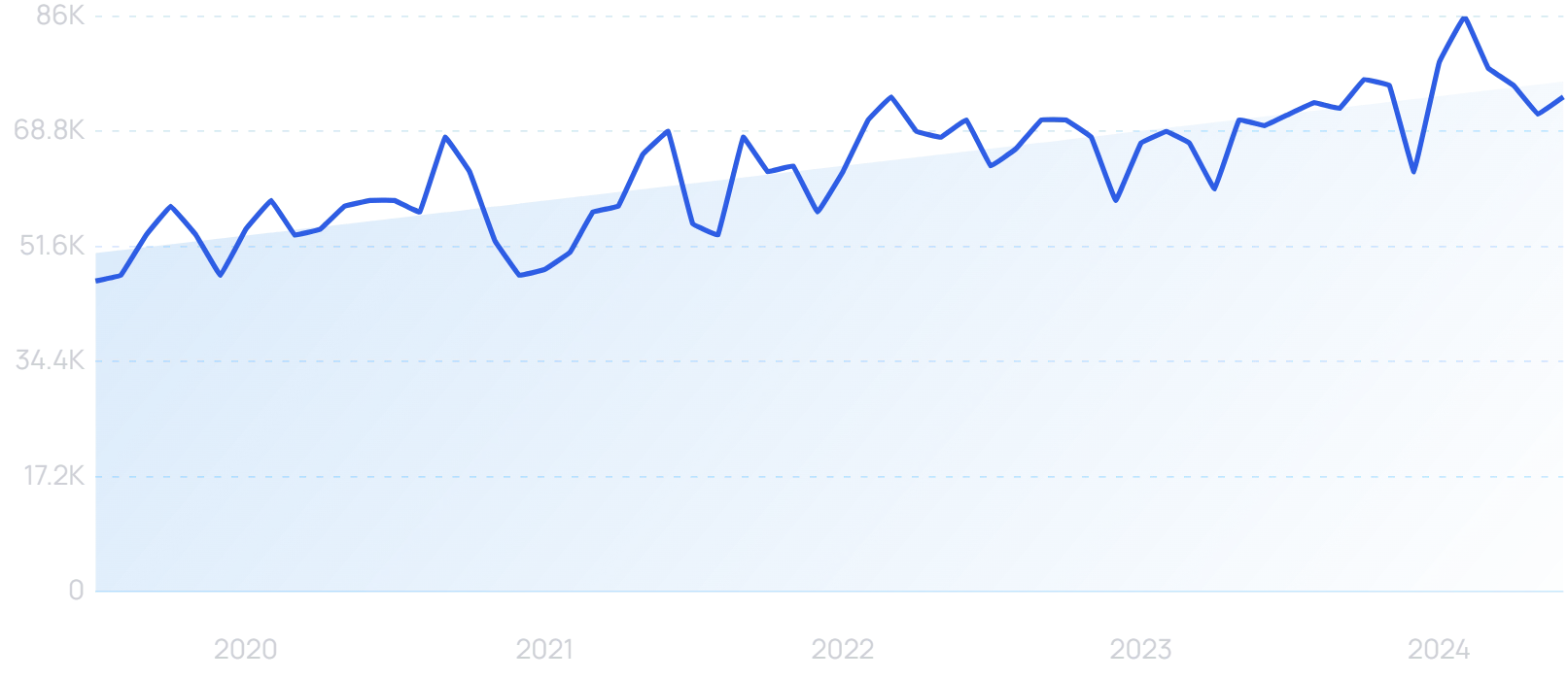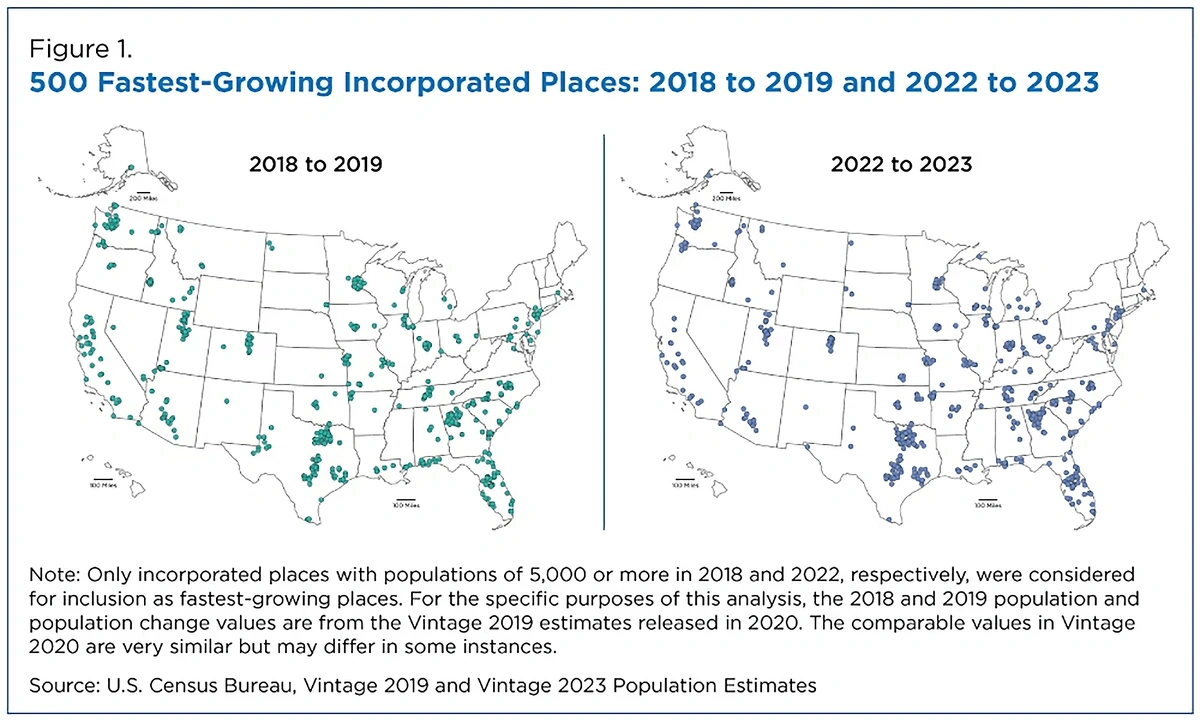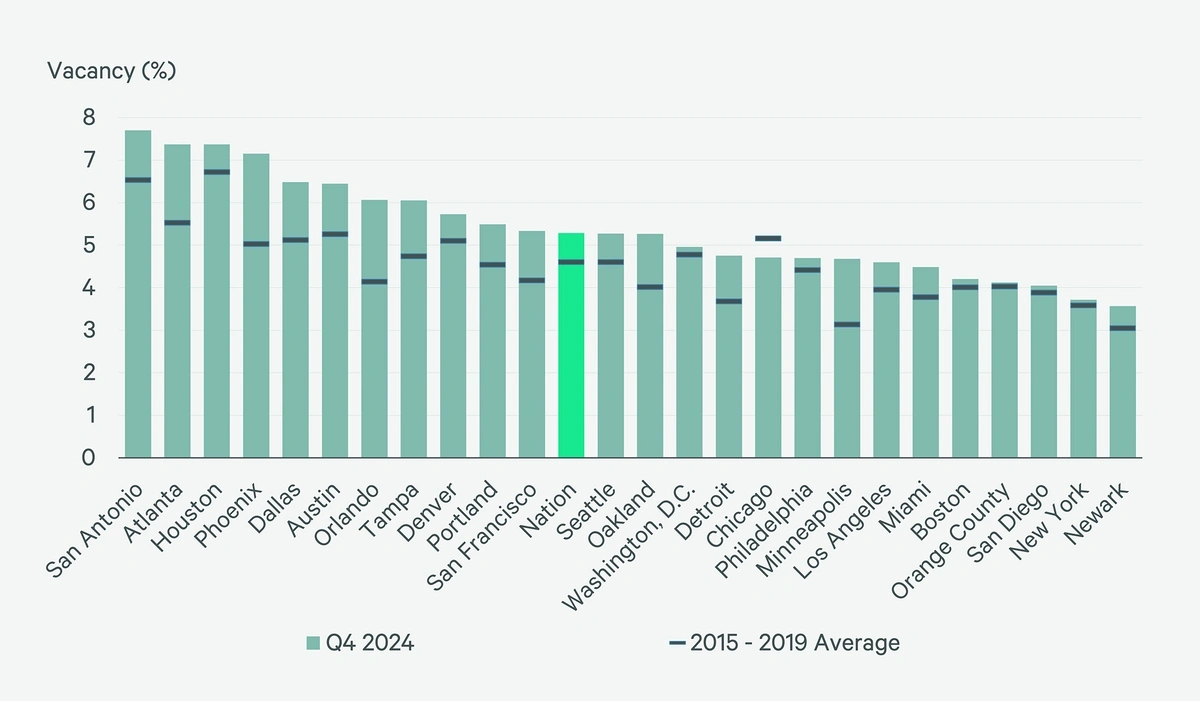Florida’s Amendment 5: A Pivotal Shift in Property Tax Policy
In the 2024 election, Florida voters approved a pivotal change in the state’s property tax policy through Amendment 5. This amendment introduces an annual adjustment for inflation to the value of current or future homestead exemptions, specifically tied to the consumer price index (CPI). With more than 66% of voters in favor, this measure reflects a significant shift in the way property taxes are assessed and managed in Florida. For more details, you can read the overview on the 2024 Florida election amendments at First Coast News.
Understanding the Amendment
Currently, Florida homeowners benefit from a $25,000 homestead exemption, which allows them to exclude this amount from their home’s assessed value for tax purposes. Most homeowners qualify for at least two such exemptions, totaling a fixed $50,000 deduction from their property’s assessed value. Starting in 2025, one of these exemptions will be adjusted annually for inflation, potentially increasing the exemption amount over time. For an in-depth explanation of this new property tax break, visit WESH.
The Homeowner’s Perspective
The adjustment for inflation is designed to help homeowners maintain the relative value of their tax exemptions as the cost of living rises. This means that as inflation increases, the exemption will also increase, further reducing the taxable value of a homeowner’s property. While the financial savings might seem modest—estimated by experts like Dr. Aubrey Jewett to be around $10 to $20 annually—over time, this could represent a meaningful reduction in property tax burdens. For more on how Amendment 5 changes homestead tax exemptions, see the analysis by WUSF.
It is crucial to note that this adjustment will not apply to school taxes. Therefore, while homeowners may see a reduction in local government property taxes, the overall impact on their total tax bill could vary depending on other factors such as school tax rates and local government budgetary needs.
Economic Implications for Local Governments
The broader economic effects of Amendment 5 have sparked debate among policymakers and economists. The state’s Revenue Estimating Conference predicts a slight reduction in local government property tax revenues. Critics, including some Democrats, warn that this could lead to a shortfall in funding for essential public services such as public safety, water management, and parks and recreation.
For instance, in Orange County alone, the anticipated decrease in tax revenue could amount to over $1.6 million annually, affecting services including fire and rescue, the sheriff’s office, and county services. This potential reduction in revenue has raised concerns that local governments might need to find alternative revenue sources or adjust spending to compensate for the loss.
Political and Social Considerations
The passage of Amendment 5 was marked by political division, with the proposal originating from Republican lawmakers and facing opposition from some Democrats. The debate centered around the potential benefits for homeowners versus the financial impact on local governments and renters, who would not benefit from the tax break.
The League of Women Voters has taken a neutral stance on the amendment, acknowledging the complexity of the decision for voters. While the amendment offers a financial break for homeowners, it poses challenges for counties that rely on property tax revenue to fund public services.
Looking Ahead
As Florida moves forward with the implementation of Amendment 5, homeowners can expect to see adjustments to their homestead exemptions beginning in 2025. While the immediate financial benefits may be modest, the long-term impact could provide meaningful relief against rising inflation.
Local governments, on the other hand, will need to navigate the potential revenue shortfalls and find ways to maintain funding for essential services. This may involve exploring alternative revenue sources or making budgetary adjustments to ensure that public needs continue to be met.
Overall, Amendment 5 represents a significant policy shift in Florida’s property tax landscape, offering both opportunities and challenges for homeowners and local governments alike.
More Articles
Getting licensed or staying ahead in your career can be a journey—but it doesn’t have to be overwhelming. Grab your favorite coffee or tea, take a moment to relax, and browse through our articles. Whether you’re just starting out or renewing your expertise, we’ve got tips, insights, and advice to keep you moving forward. Here’s to your success—one sip and one step at a time!
The Remote Work Revolution: Redefining Real Estate
The Remote Work Revolution: Redefining Real Estate
Imagine a morning where the commute is just a few steps from your bedroom to your home office. This is the reality for many in today’s post-pandemic world, where remote work has become a staple of the modern workforce. As we look ahead to 2025, projections suggest that 22% of the American workforce will continue to embrace this work-from-home model. This shift is not just changing how we work but also where we choose to live.Changing Housing Preferences
The demand for spacious homes is on the rise. Homebuyers are now seeking properties that offer dedicated areas for work, leisure, and family life. Features such as additional bedrooms, home offices, and expansive backyards are more sought after than ever. This trend is transforming homes into multifunctional spaces, balancing efficiency with comfort.Urban Exodus and the Suburban Surge
An intriguing trend is the move away from bustling urban centers to more affordable suburban and rural areas. Recent studies highlight a significant uptick in demand for housing in smaller towns, as remote workers capitalize on the freedom to live without the constraints of a daily commute. The data underscores this shift, with suburban and rural homes experiencing notable price increases. For a deeper dive into these trends, visit the original article.Impact on Rental Markets
The rental market is not immune to these changes. Many renters are now considering locations previously deemed less desirable due to high urban rents. Areas in the Midwest and South are witnessing a surge in rental applications, driven by the remote work boom.Ownership vs. Renting: A Changing Dynamic
The allure of homeownership is growing, particularly among millennials and Gen Zers. With the flexibility to choose their living environment, many are opting to invest in homes, tapping into the benefits of equity. Meanwhile, renters are prioritizing higher-quality housing equipped with essential office infrastructure, such as fiber optic internet and home offices.Challenges of Affordability
Despite these trends, affordability remains a pressing concern. Rising home prices and increasing mortgage rates can be barriers for potential buyers. This has led to innovative financing solutions, such as co-buying among families, to navigate the fluctuating market.Commercial Real Estate: A New Landscape
The rise of remote work is also reshaping the commercial real estate sector. Companies are reevaluating their office space needs, leading to a shift toward flexible working environments. This transition could pave the way for collaborative coworking spaces, allowing businesses to maintain a presence in urban centers while offering employees a choice of flexible workspaces.Looking Ahead
As remote work continues to influence the housing market, several outcomes are anticipated:- Continued demand for space in suburbs and smaller cities.
- Growth of hybrid work models, impacting housing market dynamics.
- Increased infrastructure investments in suburban areas.
Adapting to the New Era
Understanding these shifts is crucial for anyone involved in real estate. Whether you’re a buyer, seller, or agent, staying informed about these evolving preferences is essential. Consider market trends when pricing properties, offer features that appeal to remote workers, and remain adaptable in this rapidly changing landscape.ALSO READ:
- Housing Market Predictions for Next 5 Years (2024-2028)
- Housing Market Predictions for the Next 2 Years
- Housing Market Predictions: 8 of Next 10 Years Poised for Gains
- Housing Market Predictions: Top 5 Most Priciest Markets of 2024
- Real Estate Forecast Next 5 Years: Top 5 Future Predictions
- Housing Market Predictions for 2027: Experts Differ on Forecast
CRISPR: The Future of Gene Editing and Its Clinical Implications
CRISPR: The Future of Gene Editing and Its Clinical Implications
In a groundbreaking development, CRISPR technology has become the frontrunner in genome editing, surpassing earlier methods like zinc finger nucleases and transcription activator-like effector nucleases. The recent approval by the FDA of the CRISPR-Cas9 drug, exa-cel, marks a significant milestone in clinical applications, particularly for treating sickle cell disease and transfusion-dependent beta thalassemia.Advancements in CRISPR Technology CRISPR technology is diverse, with various methods tailored for specific applications. CRISPR-Cas9, derived from the immune system of Streptococcus pyogenes, acts as molecular scissors to cut DNA at precise locations. Other variants, such as CRISPR-Cas12 and CRISPR-Cas3, offer unique advantages, including shorter guide RNA requirements and extensive DNA removal capabilities, respectively. Meanwhile, CRISPR-Cas13 targets RNA, opening avenues for treating viral infections like influenza and SARS-CoV-2.
Clinical Trials and Therapeutic Potential The approval of exa-cel, developed by Vertex Pharmaceuticals and CRISPR Therapeutics, is based on promising phase 3 trial data, where a majority of patients with sickle cell disease and beta thalassemia showed significant improvement. Other companies, such as Editas Medicine and Beam Therapeutics, are also exploring CRISPR’s potential in treating these blood disorders through innovative approaches like base editing.
Beyond blood diseases, CRISPR is being trialed for urinary tract infections, hereditary transthyretin amyloidosis, and hereditary angioedema. For instance, Locus Biosciences is conducting trials using CRISPR-Cas3 to tackle antibiotic-resistant UTIs, while Intellia Therapeutics is pioneering therapies for genetic diseases using lipid nanoparticles for systemic delivery.
Expanding Horizons: Cardiovascular and Metabolic Diseases CRISPR’s application extends to cardiovascular diseases, with Verve Therapeutics testing gene editing treatments for familial hypercholesterolemia. In type 1 diabetes, CRISPR Therapeutics is exploring gene-edited pancreatic cells to potentially eliminate the need for lifelong immunosuppression.
Challenges and Ethical Considerations Despite these advancements, challenges remain, particularly concerning the high costs of CRISPR therapies and the regulatory frameworks required to ensure safety and efficacy. Ethical considerations, especially those involving heritable genetic changes, necessitate careful oversight.
As the landscape of gene editing evolves, the focus will be on making these transformative therapies accessible and affordable. The original article from Endocrinology Advisor provides a comprehensive overview of these developments, highlighting the potential of CRISPR to revolutionize medical treatments and improve human health outcomes.
AI Revolution in Oncology: Transformative Potential or Overhyped?
The AI Revolution in Oncology: Transformative Potential or Overhyped?
In recent years, artificial intelligence (AI) has emerged as a revolutionary tool in the field of oncology. While initial fears suggested a nearing AI bubble, experts like Ghazenfer Mansoor of Technology Rivers clarify that it’s a misalignment of expectations versus actual industry contributions. AI’s integration into healthcare transcends buzzwords, transforming cancer diagnosis, treatment personalization, and drug discovery.
AI in Cancer Detection
Ryan Schoenfeld of the Mark Foundation for Cancer Research emphasizes AI’s leap in oncology diagnostics, particularly in radiology. AI’s precision and speed in analysis can enhance early cancer detection. In contrast, Philip Lieberman of Analog Informatics notes AI’s consistency over human capability, especially in underserved or rural areas. Jeffery Sorenson highlights AI’s prowess in predictive medicine, surpassing traditional diagnostic goals.
For example, Mayo Clinic has pioneered a hypothesis-driven AI tool improving cancer diagnostics by integrating clinical, radiology, and genomic data. As a result, AI-enhanced precision in treatment strategies is becoming more evident, as exemplified by liquid biopsy advancements at Weill Cornell Medicine and Johns Hopkins, which have marked improvements in earlier cancer detection.
AI in Drug Discovery and Development
AI is also a game-changer in drug discovery. Tools like DeepMind’s AlphaFold have accelerated the identification of novel cancer therapeutics. AlphaFold’s prediction of over 200 million proteins has profoundly influenced oncology research. Moreover, drugs like BBO-8520 and collaborations between Evotec and Exscientia have reached trial phases much faster due to AI’s efficiency.
Movements Toward Precision Oncology
AI’s capacity to create highly personalized treatments, as described by Jason Williams, could surpass traditional methods. Multi-faceted data integration, including genetics and tumor profiling, allows AI to craft individualized treatment plans. Recent studies from Oxford University and Evaxion Biotech demonstrate AI’s capability in creating adaptive therapies and personalized vaccines.
Challenges and Future Prospects
Despite its potential, deploying AI in oncology faces regulatory hurdles and ethical considerations, particularly around data bias and transparency. The evolution of regulations, like the European Commission’s AI Liability Directive and FDA’s AI/ML plan, remains a work in progress. Ghazenfer Mansoor stresses the need for regulatory frameworks that encourage innovation without stifling progress.
Looking Forward
Industry experts are optimistic about AI’s trajectory in oncology. Areas such as predicting immune responses, designing therapeutic proteins, and leveraging large language models for analytics hold significant promise. The fusion of AI with biological computing may streamline and personalize cancer treatment, promising a brighter future in oncology as we refine AI’s potential to truly revolutionize cancer care.
The AI revolution in oncology is here, and while tempered expectations may facilitate a more sustainable integration, the road ahead is undeniably transformative.
AI in Radiology: A Double-Edged Sword
AI in Radiology: A Double-Edged Sword
The rapid advancements in artificial intelligence (AI) are transforming the landscape of radiology, promising to enhance diagnostic accuracy and support personalized medicine. However, as this technology becomes more integral to medical imaging, it brings with it a host of ethical and societal considerations that cannot be ignored.
The Promise of AI
AI technologies, particularly those employing machine learning (ML) and deep learning (DL), are being hailed for their potential to improve predictive analytics and diagnostic performance. Studies, such as those by McKinney et al., have demonstrated AI’s ability to outperform human experts in tasks like breast cancer screening. This has sparked excitement about AI’s role in advancing healthcare and promoting health equity.
Challenges and Ethical Concerns
Despite the hype, the implementation of AI in healthcare lags behind its technological development. As noted in the article, “The state of AI hype has far exceeded the state of AI science.” This gap highlights several ethical concerns, including transparency, accountability, and potential biases in AI systems. The “black box” nature of many AI algorithms raises questions about their decision-making processes and the implications for patient care.
Bias and Responsibility
A major concern is the potential for AI systems to perpetuate or even amplify existing biases in healthcare. The article references works such as those by Mittelstadt and Floridi, which discuss the ethical foresight needed to address these issues. Ensuring that AI tools are developed and deployed with fairness and justice in mind is crucial to avoid exacerbating healthcare disparities.
Guidelines for Ethical AI
To navigate these challenges, robust ethical guidelines are essential. Initiatives like FUTURE-AI, as discussed by Lekadir et al., aim to align technological advances with ethical standards. These guidelines emphasize principles such as explainability, trustworthiness, and accountability, ensuring that AI systems serve the common good.
Looking Forward
As AI continues to evolve, its integration into radiology and healthcare must be guided by interdisciplinary research and a deep understanding of its societal implications. The article underscores the need for a shift from focusing solely on technological advancements to considering the broader context in which AI operates.
In conclusion, while AI holds great promise for the future of radiology, it is imperative that its development and deployment are approached with caution and a commitment to ethical integrity. By doing so, we can harness the power of AI to create more equitable and effective healthcare systems.
Humanity at the Crossroads: Ethical Implications of AI in Medicine
Humanity at the Crossroads: Ethical Implications of AI in Medicine
The integration of artificial intelligence (AI) in healthcare has ushered in a new era of medical advancements, but not without raising significant ethical concerns. As AI systems become more prevalent in fields like radiology, emergency medicine, and telehealth, the challenge lies in addressing fundamental issues such as patient consent, data privacy, and implicit biases that these technologies often overlook.Unraveling the Bias in Algorithms
AI’s promise in healthcare is undeniable, with its ability to uncover hidden disease patterns and predict illnesses. However, the reliance on historical data can exacerbate existing biases, particularly affecting marginalized communities such as the LGBTQIA+ and certain ethnic and racial groups. As highlighted in the article, addressing these biases during the initial implementation phase is crucial to enhancing outcomes more effectively than traditional methods.
Despite the importance of this issue, a study by du Toit et al. revealed that many peer-reviewed articles fail to address algorithm biases adequately. Out of 63 articles on hypertension, none tackled the bias issue, underscoring the need for healthcare and AI professionals to develop stringent measures to identify and rectify such biases.
Empowering Patients Through Informed Consent
Patient autonomy remains a cornerstone of medical ethics, especially in the AI era. Older patients with multiple chronic conditions often express skepticism toward AI-based modalities. An ethical AI system must ensure that these patients are informed about the benefits and have the option to opt out. Transparency in this process fosters trust and addresses concerns about data security and privacy.
Responsible Deployment of AI Technologies
Regulatory bodies like the U.S. Food and Drug Administration (FDA) play a pivotal role in the ethical deployment of AI in healthcare. Establishing comprehensive guidelines and conducting frequent assessments are essential to maintaining transparency and accountability. The article emphasizes the need for a dynamic regulatory framework to prevent AI misuse and ensure patient welfare.
Liability Concerns and AI Hallucinations
Liability concerns present a complex challenge in the event of adverse outcomes. While physicians hold primary responsibility for AI technology selection, manufacturers must also ensure product safety and efficacy. The emergence of AI-specific liability insurance offers a novel solution to managing malpractice claims.
Moreover, healthcare providers must address AI hallucinations—AI-generated misinformation not based on real data. Recognizing the limitations of AI and its inability to replace personalized care is crucial.
Emotions and the Ethical Use of AI in Healthcare
AI’s impact on patient emotions is significant. The introduction of AI-powered diagnostic tools can lead to increased patient distress if not communicated empathetically. Ensuring equity and fairness in AI algorithms is imperative to prevent biases that affect emotional well-being.
Preserving the empathetic human connection in an AI-driven healthcare landscape is paramount. While AI can streamline tasks, it cannot replace the irreplaceable role of human healthcare practitioners in addressing emotional needs.
As AI continues to transform healthcare, it is vital to prioritize ethical considerations. By actively engaging in ethical discussions, the healthcare industry can harness AI’s full potential to improve patient outcomes while upholding the values of medicine.






The Future of Telemedicine: Challenges and Opportunities Beyond the Pandemic
Dr. Mehrotra, a key figure among policymakers and researchers, is at the forefront of ensuring that telemedicine remains a viable option in the healthcare arsenal. The challenge is to integrate this technology without escalating costs, diminishing the quality of care, or overshadowing the indispensable role of in-person consultations.
Adapting to Change
Telemedicine’s meteoric rise during the pandemic was facilitated by flexible rules from both government and private insurers. Although the urgency of the pandemic has waned, the demand for telemedicine persists. Advances in technology, shifting preferences among patients and doctors, and new legislative frameworks have all contributed to this ongoing demand.However, the path forward is fraught with questions. What are the best practices for telemedicine? How should it be integrated into the broader U.S. healthcare system? These questions are critical as we consider the impending expiration of certain Medicare and Medicaid policies in December 2024.
Medicare Telehealth Services
For Medicare, the decision to extend, amend, or extinguish telemedicine access is a delicate balancing act between costs and benefits. Dr. Mehrotra’s research, published in Health Affairs, offers a comprehensive analysis of telemedicine’s impact on a national scale. His findings suggest that the temporary rules facilitating remote healthcare should become permanent, given the modest increase in spending and improved access to care.Cost-Benefit Analysis for U.S. Health Systems
In 2021 and 2022, health systems with high telemedicine use saw a 2.2% increase in visits but a 2.7% decrease in non-COVID-19 emergency visits. While spending increased slightly, patients were more compliant with medication regimens for chronic conditions. These insights reinforce the value of telemedicine, a sentiment echoed in studies on mental health and pediatrics.Protecting In-Person Practices, Preserving Access to Care
In his testimony before Congress, Dr. Mehrotra recommended lower payment rates for telehealth visits compared to in-person visits, to ensure the competitiveness of traditional practices. He also advocated for the removal of in-person visit requirements for mental health telemedicine appointments, recognizing the shift to virtual-only practices among many clinicians.Telemedicine Care Across State Lines
One of the thorniest issues is the restriction on telemedicine across state lines. Current regulations often prevent patients from accessing care from their regular doctors when out of state. Dr. Mehrotra’s work highlights the need for federal laws to allow telemedicine across state borders, safeguarding the continuity of care.New Ways of Practicing Medicine
The evolution of telemedicine is not just about video calls. It’s about reimagining how care is delivered, whether through secure messaging or remote monitoring technologies. As Dr. Mehrotra points out, the challenge lies in navigating these advances to enhance patient care while ensuring fair compensation for providers. As we stand on the cusp of a new era in healthcare, the potential of telemedicine is immense. But to realize this potential, we must establish the right rules and frameworks. The stakes are high, but the promise of a more accessible, efficient healthcare system is within reach.
As we stand on the cusp of a new era in healthcare, the potential of telemedicine is immense. But to realize this potential, we must establish the right rules and frameworks. The stakes are high, but the promise of a more accessible, efficient healthcare system is within reach.The Digital Healthcare Revolution: Transforming Patient Care with Technology
The global digital health market is set to skyrocket, with projections estimating it will reach $551.09 billion by 2027. This growth is fueled by innovations that are setting new benchmarks in healthcare delivery.
Telehealth: A Game Changer in Healthcare
**Telehealth** has emerged as a pivotal player in the healthcare industry, especially during the COVID-19 pandemic. According to the U.S. Centers for Disease Control and Prevention, there was a 154% increase in telehealth visits during the last week of March 2020 compared to the same period in 2019. This surge highlights telehealth’s scalability and versatility in meeting diverse healthcare needs.
The impact of **telehealth** is particularly significant in mental health services, where virtual care has provided continuous support to patients, especially those in remote areas. The original article emphasizes the transformative role telehealth is playing across various sectors.
Beyond Healthcare: Cross-Industry Applications
**Telehealth’s influence** extends beyond traditional healthcare boundaries. In education, telehealth platforms are bridging the gap between medical knowledge and practical application, enhancing the clinical skills of medical students. In the corporate world, telehealth is being integrated into wellness programs, offering employees convenient access to health services, which in turn boosts productivity and reduces costs.
Revolutionizing Healthcare Operations with No-Code and Low-Code Platforms
The integration of **No-Code (NC)** and **Low-Code (LC)** platforms is revolutionizing healthcare operations. These platforms allow for the swift development and deployment of digital solutions, making technology more accessible to healthcare providers. This efficiency is crucial in rapidly evolving healthcare scenarios, such as during pandemics.
Studies have shown that **NC** and **LC platforms** can reduce application development costs by up to 20%, offering significant financial benefits to healthcare organizations.
Personalized Telehealth: Enhancing Patient Experience
Customizing **telehealth services** to cater to individual patient needs significantly enhances the healthcare experience. Personalized telehealth interventions have been shown to improve patient satisfaction and engagement, particularly in chronic disease management. This tailored approach not only improves outcomes but also fosters patient loyalty and trust.
The Future of Healthcare: Technological Integration
As we look to the future, **AI-driven diagnostics** and **wearable technology** are poised to redefine the healthcare landscape. **AI** is expected to revolutionize diagnostic accuracy and treatment efficacy, while wearable devices offer real-time patient monitoring, particularly for chronic conditions like diabetes and heart disease.
These technological advancements underscore the importance of equitable access to digital health, as emphasized by the World Health Organization. The healthcare industry is on the brink of a new era, where technology is central to creating a healthier, more connected world.
University of Pennsylvania Pioneers the Planetary Health Curriculum

Dr. Hussain, who originally found her passion for environmental advocacy during her undergraduate studies with sea anemones, has become a trailblazer in integrating **environmental considerations** into **medical education**. Inspired by the stark evidence presented in the Intergovernmental Panel on Climate Change’s reports, Hussain realized the importance of aligning her medical career with ecological preservation.
The curriculum, launched in 2022, enjoys growing momentum, reflecting a broader trend in **medical education** as institutions like Harvard Medical School and Stanford University’s School of Medicine adopt similar programs. The educational content is seamlessly woven into existing courses at PSOM, where students learn about the direct implications of **climate changes**—such as extreme weather and pollution—on **human health** alongside traditional medical subjects.
Aside from core courses, PSOM continues to offer specialized classes like the **Climate Change and Health elective**, examining the differential impact of environmental changes on vulnerable populations and their healthcare outcomes. This elective delves into how shifts in the ecosystem can influence disease prevalence and respiratory health.
Collaboration is Key
A crucial component of this educational initiative is collaboration. Under Hussain’s guidance, PSOM’s students and faculty collaborate to integrate **climate-awareness** in various medical disciplines, from Psychiatry to Pulmonology, ensuring that students are well-prepared to tackle these challenges in their professional lives.
Additionally, the thriving student-led **Healthcare Sustainability Group** leads efforts in pushing beyond classroom learning. Their projects aim to transform healthcare operations, such as creating greener operating rooms, thus reducing the **environmental footprint** of healthcare services.
From Classroom to Clinical Practice
The curriculum’s next phase will broaden its scope from classroom learning to practical applications during clinical rotations, preparing students to engage with patients directly on **environmental factors** affecting health and advocating for systemic changes.
As Sarah Wornow and her fellow students champion this vital cause, PSOM remains committed to its institutional goal of becoming the most **environmentally friendly healthcare system** in the nation. Their comprehensive approach reflects a keen understanding that sustainable practices are essential in preserving both **planetary** and **human health**.
For more detailed stories and updates on Penn Medicine’s ongoing sustainability efforts, readers can explore related articles discussing the transformational work in operating rooms, **healthcare sustainability goals**, and groundbreaking health research on **climate change impacts**.
The Deep-Learning Triple Threat Transforming Medical Imaging
The Deep-Learning Triple Threat Transforming Medical Imaging
In a world where technology is reshaping industries at an unprecedented pace, the field of radiology stands on the cusp of a revolution, thanks to advancements in artificial intelligence (AI). The integration of AI into medical imaging systems has introduced a new era of speed, detail, and precision, promising to redefine the landscape of healthcare diagnostics. AI: A Triple Threat in Radiology AI is being hailed as a “triple threat” in radiology, impacting planning, scanning, and diagnosis. As detailed in a recent column by Kelly Londy of GE HealthCare, these intelligent imaging systems are ushering in seismic changes reminiscent of the transformative impact of computer-assisted tomography in the late 20th century. You can read the full article on AuntMinnie. Unleashing the Power of Deep Learning A subset of AI, deep learning, is at the heart of these advancements. By employing artificial neural networks, deep learning mimics the human brain’s ability to learn, enabling computers to process complex data with remarkable efficiency. This capability allows for the creation of detailed, comprehensive imaging data, even in challenging conditions such as patient movement during scans. Enhancing Patient Care and Workflow
The benefits of AI in radiology extend beyond image quality and scan speed. By automating routine tasks like image segmentation and measurement, AI serves as an “intelligent assistant” to radiologists, potentially reducing burnout and enhancing job satisfaction. This, in turn, allows healthcare professionals to dedicate more time to patient interactions and personal care.
Sustainability and Access
AI’s impact is not limited to clinical outcomes. As Londy notes, AI technologies are driving sustainability in healthcare by reducing energy consumption and CO2 emissions, thereby alleviating cost pressures and improving access to essential imaging services.
Looking Ahead
The future of medical imaging is bright, with AI poised to play an even more significant role. As deep learning continues to evolve, its applications will extend into planning and diagnosis, revolutionizing the patient experience and unlocking new possibilities in personalized medicine.
In the realm of neuroscience, AI-powered MRI is already making strides, offering insights into brain structures and functionalities previously unexplored. These innovations promise to enhance the diagnosis and treatment of complex neurological disorders, paving the way for breakthroughs in medical science.
As we stand on the brink of this technological transformation, the potential for AI to empower clinicians and improve patient care is immense. The integration of AI into clinical practice is set to revolutionize radiology, making diagnostics faster, more accurate, and more accessible than ever before.
Kelly Londy is president and CEO of GE HealthCare’s MR business. The views expressed in this article are her own and do not necessarily reflect those of AuntMinnie.com.
“`
Enhancing Patient Care and Workflow
The benefits of AI in radiology extend beyond image quality and scan speed. By automating routine tasks like image segmentation and measurement, AI serves as an “intelligent assistant” to radiologists, potentially reducing burnout and enhancing job satisfaction. This, in turn, allows healthcare professionals to dedicate more time to patient interactions and personal care.
Sustainability and Access
AI’s impact is not limited to clinical outcomes. As Londy notes, AI technologies are driving sustainability in healthcare by reducing energy consumption and CO2 emissions, thereby alleviating cost pressures and improving access to essential imaging services.
Looking Ahead
The future of medical imaging is bright, with AI poised to play an even more significant role. As deep learning continues to evolve, its applications will extend into planning and diagnosis, revolutionizing the patient experience and unlocking new possibilities in personalized medicine.
In the realm of neuroscience, AI-powered MRI is already making strides, offering insights into brain structures and functionalities previously unexplored. These innovations promise to enhance the diagnosis and treatment of complex neurological disorders, paving the way for breakthroughs in medical science.
As we stand on the brink of this technological transformation, the potential for AI to empower clinicians and improve patient care is immense. The integration of AI into clinical practice is set to revolutionize radiology, making diagnostics faster, more accurate, and more accessible than ever before.
Kelly Londy is president and CEO of GE HealthCare’s MR business. The views expressed in this article are her own and do not necessarily reflect those of AuntMinnie.com.
“`Federal Reserve’s Interest Rate Cut: Implications for the Housing Market

Mortgage Rate Dynamics
Despite the Federal Reserve’s interest rate cut, mortgage rates might not see a dramatic drop. Currently, the average rate for a 30-year fixed mortgage stands at 6.2%, according to Freddie Mac. While this is a decrease from previous highs, it remains significantly above the sub-3% rates seen during the pandemic.Charlie Dougherty, a senior economist at Wells Fargo, anticipates only a marginal decline in rates, projecting them to settle around 5.5% by the end of 2025. This suggests that while the Fed’s decision may offer some relief, it won’t be a panacea for the housing market’s challenges.
Impact on Housing Prices
Interestingly, lower mortgage rates could paradoxically lead to higher housing prices. As rates decrease, more buyers are likely to re-enter the market, intensifying competition for a limited housing supply. This scenario is particularly concerning for first-time buyers, who have already been grappling with affordability issues.Kim Kronenberger, a real estate agent from Denver, highlights the struggles faced by these buyers, many of whom regret not purchasing homes when prices were lower. The increased demand could further escalate prices, making it even harder for new entrants to secure their first homes.
Potential for Increased Housing Supply
The rate cut could, however, spur an increase in housing supply. The U.S. is currently facing a shortfall of millions of housing units, as noted in a JCHS Blog. Lower interest rates may enable builders, especially smaller developers, to commence new projects, potentially alleviating some supply-side pressures.As builders respond to the anticipated rise in demand, more homes could enter the market, gradually easing the upward pressure on prices. However, the construction and completion of these new homes will take time.
Affordability Challenges Persist
Despite the potential benefits of lower rates, affordability remains a significant hurdle. Home prices have surged by about 50% since early 2020, outpacing income growth and making housing increasingly inaccessible for many. Furthermore, a substantial number of homeowners are locked into low-rate mortgages from the pandemic era, reducing the incentive to sell and further constricting inventory.Greg McBride from Bankrate.com underscores that the housing market has yet to see a substantial boost from recent rate reductions. With home prices at record highs and inventory levels below pre-pandemic norms, the Fed’s rate cut alone is unlikely to resolve these deep-seated issues.
In conclusion, while the Federal Reserve’s rate cut introduces several dynamics that could reshape the housing market, it is clear that a multifaceted approach will be necessary to address the complex challenges of affordability and supply.
Public Perceptions of AI in Healthcare: A Balancing Act Between Innovation and Ethics
Public Perceptions of AI in Healthcare: A Balancing Act Between Innovation and Ethics
In the rapidly evolving landscape of healthcare, the integration of artificial intelligence (AI) stands as a beacon of both promise and concern. A recent study published in BMC Medical Ethics on June 22, 2024, delves into the public perceptions surrounding AI’s role in patient-centered care. The study, which can be accessed here, highlights both the potential benefits and ethical dilemmas posed by AI in the medical field.The research underscores a significant tension: while AI has the capability to enhance healthcare delivery, there is palpable unease about its impact on the traditional physician-patient relationship. As AI technologies become more prevalent, concerns about the erosion of personal interactions in healthcare settings have come to the forefront.
Ethical Concerns and Public Perception
The study reveals that a substantial portion of the public remains wary of AI’s involvement in personal healthcare decisions. This apprehension stems from fears of losing the “human touch” that is integral to patient-centered care. The findings align with previous research, such as that by Epstein and Street, which emphasizes the value of empathy and understanding in healthcare interactions.Moreover, the study calls attention to the lack of oversight and guidance in integrating AI with patient-centered care. This gap in regulation raises ethical questions about transparency, accountability, and patient consent. The need for robust guidelines is echoed in the fundamentals of open access and open research, which advocate for ethical practices in scientific advancements.
Opportunities for AI in Healthcare
Despite these concerns, the potential for AI to support patient care cannot be overlooked. The study highlights how AI can assist in administrative tasks, freeing up healthcare professionals to focus more on patient interactions. This dual role of AI as both a tool and a potential disruptor is a recurring theme in the discourse on AI in healthcare.To address these challenges, the study suggests a cautious approach to AI integration, emphasizing the importance of maintaining the core principles of patient-centered care. The findings suggest that with proper regulation and ethical considerations, AI can be a valuable ally in the healthcare sector.
Conclusion
As the medical community continues to explore the integration of AI, the balance between innovation and ethics remains crucial. This study serves as a reminder that while technology can drive progress, the human element in healthcare must not be compromised. For a more detailed exploration of these findings, the full article is available here.The Ethical Dilemmas of AI: A Modern Conundrum
The Ethical Dilemmas of AI: A Modern Conundrum
 As artificial intelligence (AI) technology advances, it presents a myriad of ethical dilemmas and challenges that demand urgent attention. The USC Annenberg School for Communication and Journalism recently explored these pressing issues, highlighting the complexities involved in AI’s deployment.
As artificial intelligence (AI) technology advances, it presents a myriad of ethical dilemmas and challenges that demand urgent attention. The USC Annenberg School for Communication and Journalism recently explored these pressing issues, highlighting the complexities involved in AI’s deployment.Bias and Fairness: One of the primary concerns is the potential for AI systems to inherit and amplify biases present in their training data. This can result in unfair or discriminatory outcomes, particularly in critical sectors like law enforcement and hiring. Ensuring fairness in AI algorithms is a critical ethical concern.
Privacy: AI systems often require access to large datasets, raising concerns about privacy violations. The ethical challenge lies in collecting, using, and protecting this data responsibly.
Transparency and Accountability: Many AI algorithms operate as “black boxes,” making them difficult to understand or interpret. Ensuring transparency and accountability in AI decision-making is crucial for building user trust and maintaining ethical standards.
Autonomy and Control: As AI systems become more autonomous, the potential loss of human control becomes a significant concern, especially in applications like autonomous vehicles and military drones.
Job Displacement: AI-driven automation can lead to job displacement and economic inequality. Addressing the societal impact of automation and ensuring a just transition for workers is an ethical imperative.
Security and Misuse: The potential for AI to be used for malicious purposes, such as in cyberattacks or surveillance, poses a significant security challenge.
Environmental Impact: The computational resources required for AI can have a substantial environmental impact. Ethical considerations include minimizing AI’s carbon footprint and promoting sustainable development.
AI in Education and Healthcare: The integration of AI in education and healthcare raises concerns about data privacy, the quality of education, and the preservation of human expertise.
Addressing these ethical issues requires a multidisciplinary approach involving technologists, ethicists, policymakers, and society at large. Developing ethical guidelines, regulations, and best practices is essential to ensure AI technologies benefit humanity while minimizing harm.
In a surprising twist, the article itself, co-authored by ChatGPT, raises further ethical questions about the use of AI-generated content. As Kirk Stewart, CEO of KTStewart and adjunct faculty member at USC Annenberg, emphasizes, it is vital to establish regulatory frameworks that safeguard civic life while embracing technological advancements.
CSS for Styling
Revolutionizing Radiology: AI’s Impact on Diagnostics
Qure.ai, alongside other innovators such as Arterys, DeepMind (acquired by Google), and Cleerly, is pioneering the use of **AI in radiology** to address **diagnostic challenges**. Their technologies process vast numbers of **X-rays, CT scans, and MRIs**, diagnosing conditions like **tuberculosis, lung cancer, and stroke** with remarkable speed and precision.
In **resource-constrained environments**, **AI technology** is crucial. For instance, Qure.ai’s systems deployed on mobile units in the Philippines have reduced the **TB diagnosis process** from weeks to seconds. This technology is now operational in over 3,000 global sites, demonstrating its scalability and impact.
Advancing Diagnostic Accuracy
AI’s role extends beyond speed; it enhances **diagnostic consistency**. As Prashant Warier, CEO of Qure.ai, explained, **AI offers consistent results** where human radiologists may often disagree. This reliability is vital for diseases requiring timely intervention, such as **lung cancer**, where early detection is crucial.
Qure.ai’s AI tools, in partnership with AstraZeneca, assist in triaging **lung cancer risks** through routine X-rays, ensuring high-risk patients receive prompt medical attention. Their reach spans over 90 countries, processing more than 10 million scans annually, reinforcing their significance in modern medicine.
Global Reach and Future Prospects
The recent Series D funding round, raising $65 million, highlights Qure.ai’s growth trajectory. This funding will enable them to scale **AI capabilities** further and expand into new markets, like the United States.
Qure.ai’s success reflects a broader trend towards **AI-enhanced healthcare** that extends into treatment strategies and patient management. Future developments involve integrating **AI with genomics and electronic health records**, providing a holistic view of **patient health**. As Warier suggests, the fusion of multiple **health data points** will facilitate more informed, comprehensive medical decisions.
This development marks a new era where **AI** not only supports but transforms **healthcare delivery globally**, promising more advanced, equitable solutions for everyone.
Exploring the Shifting Landscape of Real Estate in 2024
Exploring the Shifting Landscape of Real Estate in 2024
The real estate market is undergoing significant transformations as we step into 2024, with several trends reshaping the industry. This analysis, based on insights from the original article on Exploding Topics, delves into the top nine trends that are expected to impact the real estate sector this year.1. Home Prices on the Rise The demand for single-family homes continues to outpace supply, resulting in a substantial increase in home prices. Over the past four years, prices have surged by 43%, as detailed in a recent report. While this trend benefits existing homeowners through increased equity, first-time buyers face significant barriers to entry.

2. The Sun Belt’s Growing Appeal The Sun Belt, a region stretching from California to North Carolina, is witnessing a remarkable population influx. This trend is driven by factors such as lower taxes and affordable housing. As a result, cities like Dallas and Tampa are emerging as top destinations for real estate investment, according to recent rankings.

3. Digital Transformation in House Hunting The real estate sector is embracing digital innovations, with technologies like 3D tours, drone videos, and virtual staging becoming integral to the home-buying process. The National Association of Realtors highlights that online tools are now the starting point for over 40% of property buyers.

4. Suburban Migration Continues The shift from urban centers to suburbs persists, driven by the affordability and lifestyle choices offered by smaller cities. The US Census Bureau reports a continued migration trend, with suburbs offering a balance of urban amenities and suburban tranquility.

5. Single-Family Housing Shortages The demand for single-family homes is outstripping supply, creating a significant gap in the market. Since 2012, there has been a shortfall of over 7 million homes, as noted in a recent analysis. This shortage is exacerbated by institutional investors acquiring a substantial portion of available properties.

6. Rise of Multi-Generational Living Economic pressures and cultural shifts are leading to an increase in multi-generational households. This trend is particularly prominent among immigrant communities and is driven by both necessity and choice.
7. Mortgage Rates Remain High In response to inflation, mortgage rates have seen a steady increase. Although predictions suggest a slight decrease in the coming years, rates are expected to remain relatively high, impacting home affordability.
8. Decline in Urban Rental Markets The rental market in major cities is experiencing a decline as more individuals opt for homeownership or alternative living arrangements. However, smaller cities are witnessing a surge in rental demand due to limited housing supply.
9. Evolving Commercial Real Estate The commercial real estate landscape is in flux, with office vacancies reaching record highs. However, opportunities are emerging in retail and multi-family properties, driven by changing consumer preferences and work patterns.

Conclusion The real estate industry in 2024 is marked by a dynamic interplay of trends, including rising home prices, suburban migration, and technological advancements. As these trends unfold, they present both challenges and opportunities for investors, homeowners, and prospective buyers alike.
AI Revolutionizing Clinical and Molecular Diagnostics
AI Revolutionizing Clinical and Molecular Diagnostics
In a groundbreaking development, the market for AI in clinical and molecular diagnostics is set to experience a phenomenal growth trajectory. According to the recent report by ResearchAndMarkets.com, the market, valued at USD 2.6 billion in 2024, is projected to skyrocket to USD 8.9 billion by 2029. This represents a robust compound annual growth rate (CAGR) of 27.6%.Driving Forces Behind Market Growth
The surge in demand for accurate and efficient diagnostic solutions is a key driver of this growth. Advances in AI technologies, notably machine learning and deep learning, are enhancing traditional diagnostic methods in imaging, genomics, and laboratory testing. This technological evolution is paving the way for more precise and personalized medicine.
Moreover, the integration of AI into healthcare systems is becoming increasingly critical. As noted in the full report, major regions such as North America, Europe, and Asia-Pacific are at the forefront of this digital health revolution, investing heavily in innovative diagnostic solutions.

Strategic Initiatives and Challenges
The report highlights the strategic initiatives of leading companies like Siemens Healthineers AG, F. Hoffmann-La Roche Ltd., and Koninklijke Philips N.V. These firms are expanding their R&D efforts, forming strategic partnerships, and diversifying their product portfolios to capitalize on emerging opportunities.
However, the path to widespread AI adoption is not without hurdles. Regulatory challenges and data security concerns pose significant obstacles. Yet, the report identifies untapped opportunities in developing markets and across various AI technologies, presenting a promising outlook for stakeholders.
Implications for Healthcare
In an era of rapid technological advancements, the integration of AI in clinical and molecular diagnostics promises to revolutionize healthcare. It is expected to significantly improve patient outcomes and healthcare efficiency. Stakeholders, including healthcare providers, technology developers, and policymakers, are encouraged to leverage these insights for strategic planning and innovation.
For a comprehensive analysis and detailed insights, refer to the full report on ResearchAndMarkets.com.
“`
2025 Banking and Capital Markets Outlook: Navigating Low-Growth Challenges
The pressing need to control soaring expenses due to heightened compensation and technological investments underscores the vital focus on **expense management**, targeting a 60% efficiency ratio by 2025. **Credit conditions** are returning to normalcy with expectations of a modest increase in delinquencies and net charge-offs from 2024 levels. However, large diversified banks find themselves in a favorable position thanks to their broad revenue streams and financial resilience, vis-a-vis regional banks that face tighter credit standards.
Strategic Adaptation and Technological Modernization
The overarching goal for banks will be to adapt adeptly to macroeconomic shifts and regulatory implementations such as the **Basel III Endgame** re-proposal, which calls for strategic recalibration to ensure compliance without sacrificing growth. The detailed 2025 Banking Outlook emphasizes the strategic necessity for **technological modernization**, particularly leveraging **AI** to streamline operations, manage cost efficiencies, and propel banking institutions into future-ready entities.
By addressing both immediate financial metrics and underlying technological frameworks, banks are poised for a transformative journey amidst an unprecedented future. This transformation will require a delicate balance between maintaining robust financial health and pioneering innovation in banking services.
Harnessing Insights for Competitive Advantage
Considering these dynamics, banking leaders must strategize effectively to harness these insights. Weighty decisions involving **technology investments**, compliance expenditures, and workforce management will undeniably shape the banks’ ability to maintain competitiveness and secure growth in a rapidly shifting sectoral ecosystem.The insights from **Deloitte’s report** serve as a crucial guide for banks aiming to navigate the complexities of 2025 and beyond, ensuring they remain resilient and adaptable in an ever-evolving financial world.
CRISPR Technology Market Poised for Remarkable Growth to USD 12,461 Million by 2031
CRISPR Technology Market Expected to Surge Beyond USD 12,461 Million by 2031
The global CRISPR technology market is poised for remarkable growth, as reported by Coherent Market Insights. Valued at USD 3,642.1 million in 2024, it is anticipated to soar to USD 12,461 million by 2031, marking a robust CAGR of 19.2%.
Market Dynamics
CRISPR technology, renowned for its precision in gene editing, is revolutionizing gene therapy and research. It has become an essential tool for advancing treatments for various genetic disorders. The surge in demand for genomics research and personalized medicine is fueling this market’s growth.
The technology’s application extends beyond healthcare, finding use in genetically modified crops and innovative research in biological development and disease. Companies like Beam Therapeutics and CRISPR Therapeutics are at the forefront, developing groundbreaking treatments for genetic disorders such as sickle cell disease.
Market Trends
The biotechnology sector is playing a crucial role in supporting the CRISPR technology market. Companies are leveraging CRISPR and other genome-editing tools to develop new therapeutic options. Recent advancements include the development of a CRISPR/Cas9-based therapy for Sickle Cell Disease by CRISPR Therapeutics and Vertex Pharmaceuticals, highlighting the technology’s potential in clinical applications.
Regional Insights
North America is expected to maintain a dominant position in the CRISPR technology market, driven by intensive research and development activities and the presence of key players like Merck KGaA and Thermo Fisher Scientific. The region’s growth is further supported by increased funding from public and private entities.
Challenges and Opportunities
While the CRISPR technology market shows immense promise, it faces challenges such as high costs and ethical considerations. Addressing these challenges is crucial for stakeholders to ensure sustainable growth.
Conclusion
The CRISPR technology market is on a promising trajectory, with significant growth anticipated in the coming years. The advancements in genetic editing, coupled with broader applications in agriculture, healthcare, and industrial sectors, underscore the transformative potential of CRISPR. As the market continues to evolve, it will be imperative for stakeholders to navigate the associated challenges thoughtfully.
Read the original article for more insights.
Mortgage Rates Rise: A Window for Buyers Amid a Cloudy Future
Mortgage Rates Rise: A Window for Buyers Amid a Cloudy Future
Mortgage rates are climbing, with the 30-year fixed mortgage rate now at 6.64% and the 15-year fixed rate at 5.98%. This increase, reported by Yahoo Finance, suggests a challenging landscape for potential refinancing, but a possible opportunity for homebuyers as competition wanes during the holiday season.
The Current Rate Landscape
According to the latest Zillow data, here are the prevailing national averages:
- 30-year fixed: 6.64%
- 20-year fixed: 6.54%
- 15-year fixed: 5.98%
- 5/1 ARM: 7.27%
- 7/1 ARM: 7.21%
- 30-year VA: 5.99%
- 15-year VA: 5.49%
- 5/1 VA: 6.25%
- 30-year FHA: 5.70%
- 15-year FHA: 5.69%
- 5/1 FHA: 4.88%
Future Predictions and Market Implications
Experts indicate that a significant decline in rates is unlikely before the end of 2024, with 2025’s outlook remaining uncertain. This forecast suggests that those waiting for a drop in rates might be disappointed, making now a strategic time to purchase a home.
For those considering refinancing, the current climate might not be favorable. With refinance rates slightly higher than purchase rates, holding off might be prudent unless necessary for other reasons.
Understanding Mortgage Types
Choosing between mortgage types, such as a 15-year and 30-year mortgage, involves weighing long-term savings against higher monthly payments. Meanwhile, adjustable-rate mortgages (ARMs) could initially offer lower rates but carry the risk of future increases.
Strategies for Lower Rates
To secure a better deal, consider improving your credit score and saving for a larger down payment. Exploring options like discount points or a temporary interest rate buydown might also be beneficial, depending on your long-term plans.
For more insights, visit the original Yahoo Finance article.
Gene Editing: A Promising Frontier in Biotechnology
Gene Editing: A Promising Frontier in Biotechnology
Gene editing technology is swiftly emerging as a transformative force in both healthcare and agriculture. This innovation, particularly through tools like CRISPR-Cas9, is reshaping the landscape of biotechnology by providing precise methods to modify genes. Such advancements promise to revolutionize the treatment of genetic disorders, cancer, and infectious diseases.Healthcare Innovation and Investment
In healthcare, gene editing is not only enhancing the understanding of disease causes but also paving the way for personalized medicine. The initial high costs and time-consuming processes associated with gene editing have significantly decreased, making production now a matter of days. This reduction has spurred strategic investments in research and development, crucial for advancing new treatments. Venture capital firms and public funding sources have shown keen interest in early-stage biotech companies focused on gene editing. These investments are vital for supporting research, development, and clinical trials, ultimately leading to groundbreaking treatments. Collaborations between biotech startups, pharmaceutical companies, and academic institutions further bolster this progress by sharing costs and accelerating the development of new therapies.Revolutionizing Agriculture
In agriculture, gene editing holds the potential to create stronger, more sustainable, and nutritious crops. By enabling precise modifications to plant genes, scientists can develop crops that resist pests, diseases, and harsh environmental conditions. This technology also offers the possibility of reducing pesticide use, thereby lowering greenhouse gas emissions and promoting biodiversity.Ethical Considerations and Regulatory Frameworks
While the potential of gene editing is immense, it is accompanied by ethical concerns. Debates persist over its use in enhancing human abilities or creating designer children, as well as its potential to exacerbate social inequalities. It is crucial that regulatory frameworks evolve alongside technological advancements to ensure ethical and safe applications of gene editing. Agencies like the FDA play a pivotal role in regulating the approval and sale of gene-edited products.Economic Prospects with Ethical Guardrails
The economic potential of gene editing is substantial, with experts predicting significant market growth driven by research, partnerships, and new therapies. However, ethical considerations must guide investments to ensure responsible and fair use of this technology. As highlighted in the original article from Forbes, an “ethics first, investment second” approach is essential for navigating the complex landscape of gene editing.Conclusion Gene editing technology offers remarkable opportunities for advancing healthcare and agriculture while posing significant ethical challenges. As investments continue to flow into this promising field, it is imperative to balance scientific progress with ethical responsibility to ensure a future where gene editing benefits humanity as a whole.
Empowering the Gig Economy: AXA’s Tailored Protection
Empowering the Gig Economy: AXA’s Tailored Protection
The gig economy, a burgeoning landscape of non-standard employment forms like gig work, flexi-work, and freelance work, is reshaping the labor market, particularly for Gen-Z. This generation, driven by a thirst for flexibility and autonomy, is at the forefront of this transformation. However, as the South China Morning Post highlights, this shift is not without its challenges.
In Hong Kong, a notable segment of the workforce identifies as self-employed, yet they often find themselves outside the protective embrace of traditional social safety nets. Government data reveals that out of a working population of 3.69 million, 0.29 million are self-employed, a figure that excludes unpaid family workers. This gap leaves many vulnerable to financial risks associated with illness, accidents, and retirement insecurity.

Angela Wong, Chief Marketing and Customer Officer at AXA Hong Kong & Macau, underscores the critical need for comprehensive insurance solutions for gig workers. “Being self-employed shouldn’t be a risk,” she asserts. The lack of health and accident insurance can lead to substantial medical bills, jeopardizing financial stability and forcing gig workers to continue working despite health challenges.
According to a World Bank report, individuals in non-standard employment often remain outside the scope of social insurance schemes. This underscores the importance of formulating policies that extend coverage to these vulnerable segments of the workforce.
AXA is stepping up to fill this gap by offering tailored insurance solutions. By doing so, they aim to provide gig workers with the financial security and peace of mind they need to thrive in this new economy, ensuring that freedom of work comes with a safety net.
Ethical Deployment of AI in Healthcare: AMA’s Guiding Strategies
The Ethical Landscape of AI in Healthcare
The potential of AI in healthcare is vast and varied, encompassing everything from informing clinical management to autonomously diagnosing diseases. A recent AMA survey revealed that nearly two-thirds of physicians recognize AI’s potential benefits. However, with great potential comes significant risk. The AMA highlights that AI’s integration must be guided by the fundamental principles of medical ethics: patient autonomy, beneficence, nonmaleficence, and justice. The risk of bias at any stage of AI development underscores the need for physician involvement to safeguard these principles.
Physicians’ Role in AI Implementation
Physicians are urged to engage actively with professional organizations to assess AI algorithms specific to their practice, ensuring that these tools align with clinical needs. Engaging in these assessments not only aids in the reliable adoption of AI but also aligns with the standard of care for medical interventions.
Continuous Learning and Vigilance
The AMA’s Ed Hub™ CME series serves as a resource for healthcare professionals to build knowledge and skills necessary for evaluating AI algorithms. Understanding when and how to apply AI, alongside evaluating its performance, is crucial for enhancing patient care.
Legal and Ethical Awareness
As the legal landscape surrounding AI evolves, it is imperative for healthcare professionals to stay informed about changes in laws and regulations. The AMA provides a detailed overview of current governance and regulation, emphasizing the importance of aligning practices with the most current requirements.

Conclusion
The AMA’s efforts to make technology work for physicians reflect a dedication to ensuring that AI serves as an asset rather than a burden. By advocating for ethical and safe AI usage, the AMA paves the way for a future where technology and healthcare coexist harmoniously, benefitting both practitioners and patients.
AI’s Role in Revolutionizing Medical Education
AI’s Role in Revolutionizing Medical Education
As artificial intelligence (AI) continues to evolve, its integration into medical education is becoming increasingly imperative. AI, which simulates human intelligence, is reshaping various sectors, particularly healthcare. The ability to perform complex tasks, such as diagnostics and personalized healthcare, is no longer confined to human capabilities alone. This shift is prompting educational institutions to rethink their curricula to prepare future healthcare professionals for an AI-driven world.AI’s Transformative Impact on Learning
The recent surge in AI technologies, notably ChatGPT, has revolutionized digital education. These tools promote personalized learning experiences, acting as tutors, writing coaches, and question generators. The integration of AI in medical education offers unique opportunities to enhance learning, close knowledge gaps, and improve patient care.Ethical Considerations in AI Usage
Despite the promising potential of AI, ethical concerns remain prevalent. Issues such as accountability in clinical settings, where AI might err, highlight the need for clear guidelines and roles. It is essential for educational systems to instill ethical AI usage and uphold scholarly integrity among students. The original article from Frontiers emphasizes the importance of addressing these ethical responsibilities.Integrating AI into Curricula
To keep pace with technological advancements, medical schools are encouraged to incorporate AI-based tools into their curricula. This integration can enhance and personalize learning experiences, using AI for clinical communication practice and adaptive e-learning systems. The article suggests that AI literacy programs for both faculty and students are crucial for informed curriculum integration.Institutional Adaptation and Future Prospects
Educational institutions must adapt to the technological landscape by incorporating AI into their systems. This adaptation ensures they remain relevant and do not fall behind. The responsible adoption of AI could transform healthcare services, offering novel methods for training medical professionals. As we embrace AI in education, maintaining vigilance on ethical boundaries is paramount.
Conclusion
AI has emerged as a powerful tool in medical education, offering opportunities to advance healthcare and empower the next generation of professionals. By leveraging AI’s capabilities, medical education can become more personalized and efficient. However, careful attention to ethical considerations, technical infrastructure, and faculty training is essential for the responsible integration of AI into medical education.AI Chatbots in Chronic Disease Diagnosis
Revolutionizing Healthcare: AI Chatbots in Chronic Disease Diagnosis
In a groundbreaking development, artificial intelligence has once again demonstrated its transformative potential, this time within the realm of healthcare. A recent study published in Nature on July 25, 2024, unveils a cutting-edge chatbot named Chat Ella, designed to assist in the diagnosis of chronic diseases. This innovation leverages the power of large language models, specifically the GPT-2, to enhance patient care and streamline diagnostic processes.The Rise of AI in Healthcare
With telemedicine and AI technologies gaining global traction, the healthcare sector is witnessing a paradigm shift. Chronic diseases, which account for a significant portion of healthcare burdens, are now being addressed through innovative solutions like Chat Ella. This chatbot employs advanced AI to interpret patient symptom descriptions, offering preliminary diagnostic insights that can be crucial, particularly in regions with limited medical resources.Chat Ella: A Technological Marvel
Chat Ella is not just another chatbot; it’s a sophisticated system integrated with a comprehensive medical database. By utilizing the GPT-2 model, it provides a conversational interface that engages with patients, delving into symptom details and offering diagnostic recommendations. This development is a testament to the potential of AI in revolutionizing healthcare services by making them more accessible, efficient, and cost-effective.Study Insights and Methodology
The study, conducted by researchers Sainan Zhang and Jisung Song, highlights the integration of large-trained language models in healthcare applications. By employing a rigorous methodology, the team has demonstrated how AI can significantly enhance the diagnostic process. The study’s findings suggest that AI-driven tools like Chat Ella could alleviate the unequal distribution of healthcare resources and reduce the burden on medical professionals.Future Prospects and Enhancements
While Chat Ella represents a significant leap forward, the study acknowledges certain limitations, such as the need for a more extensive dataset and support for multiple languages. The authors propose future updates to include voice input and image recognition features, further broadening the system’s capabilities and usability.Conclusion
As AI continues to evolve, its integration into clinical workflows becomes increasingly vital. Chat Ella exemplifies how AI can complement human decision-making in healthcare, improving patient experiences and reducing economic costs. This technology offers a promising avenue for patients seeking efficient and convenient diagnostic services, particularly those unable to access face-to-face consultations.For more detailed insights, the original article can be accessed on Nature’s website.
Revolutionizing Genetic Research with CRISPR-Cas Technology
Unlocking the Secrets of Genetic Variants
For years, scientists have grappled with the challenge of deciphering the role of genetic mutations, particularly those classified as variants of unknown significance (VUSs). These mutations, often linked to human diseases, have remained elusive due to limited knowledge about their impact on cellular phenotypes. However, the advent of CRISPR-Cas technology is changing the game.CRISPR-Cas, a precise genome editing tool, allows researchers to manipulate specific DNA sequences with unprecedented accuracy. As noted by Wang and Doudna, this technology is not just a tool but a gateway to understanding the genetic influences on diseases. By facilitating the study of both protein-coding and noncoding regions of the genome, CRISPR-Cas offers a comprehensive approach to unraveling the genetic underpinnings of various conditions.
The Power of High-Throughput Sequencing
The marriage of CRISPR technology with high-throughput sequencing has opened new avenues for functional genomics research. Techniques like Illumina and Oxford Nanopore Technology (ONT) are enabling the detailed analysis of genetic mutations on a massive scale. This integration allows scientists to conduct high-throughput screens, analyzing the functions of numerous genetic mutations simultaneously.Moreover, advancements in single-cell sequencing are enhancing the granularity of genetic studies. By examining individual cells, researchers can gain deeper insights into the specific effects of genetic knockouts and the global changes in gene expression they induce.

CRISPR’s Role in Precision Medicine
The implications of these advancements are profound, particularly in the realm of precision medicine. By providing a detailed understanding of genetic variants, CRISPR-Cas technology holds the potential to transform diagnostic and therapeutic approaches. Researchers are now able to create isogenic disease models, facilitating the accurate analysis of phenotypic changes resulting from specific genetic mutations.Furthermore, the ability to study noncoding regions and regulatory elements expands the scope of genetic research, offering new possibilities for therapeutic interventions targeting genetic disorders at their root.
Challenges and Future Directions
Despite its promise, CRISPR technology is not without challenges. The efficiency of gene editing varies, and the risk of unintended genomic alterations remains a concern. However, ongoing research and technological advancements continue to address these limitations, paving the way for broader applications in various fields.As the scientific community delves deeper into the world of CRISPR-based functional genomics, the potential for groundbreaking discoveries is immense. With each new development, we move closer to a future where precision medicine is not just a possibility but a reality.
The Impact of Remote Work on Real Estate Investment in India
The Rise of Remote Working
Remote work has shifted traditional office-based environments as more companies adopt flexible work policies. This shift affects the demand for different types of properties, with a notable decrease in the need for commercial spaces and an increase in the appeal of residential setups.Impact on Real Estate Investment
Investors are now prioritizing residential properties, particularly those in suburban and rural areas, which provide spacious environments conducive to home offices. This shift has reinvigorated interest in locations offering enhanced quality of life, breathing space, and amenities that urban centers often lack.The demand for such properties has led to fluctuating real estate prices across different areas. While urban centers witness steady or reducing prices due to lessening demand for commercial offices, suburban and rural regions are experiencing a rise due to increased desirability and potential for appreciation.
Important Considerations for Investors
- Connectivity & Infrastructure: High-speed internet and comprehensive infrastructure are key for appealing property investments.
- Quality of Life: Desirable properties are in areas with high living standards, safety, and community amenities.
- Property Features: Homes with office spaces, natural light, and sufficient outdoor areas are in high demand.
- Market Trends: Keeping up with real estate dynamics is essential for strategic investment.
- Legal & Regulatory Factors: Understanding property laws and zoning regulations is critical to compliance.
- Future Prospects: Long-term area potential hinges on factors like infrastructure projects and economic policies.
- Community Engagement: Areas with active social communities and cultural amenities are attractive to remote workers.
For investors navigating this changing landscape, several critical factors must be considered. Connectivity, particularly high-speed internet, becomes a decisive factor, as does infrastructure support in these regions. Moreover, remote workers value quality-of-life aspects like air quality, safety, and community, pushing investors to lean towards investing in areas rich with these attributes.
Furthermore, staying abreast with market trends is vital. Investors should closely monitor current demand-supply dynamics and future development plans to make informed decisions. A thorough understanding of legal and regulatory demands ensures compliance, while insights into future prospects based on economic growth potential help in identifying high-return opportunities.
In summary, remote work is dramatically reshaping real estate trends in India. By understanding and adapting to these shifts, investors can make savvy decisions, aligning their strategies with this evolving landscape and capitalizing on the burgeoning opportunities that remote working presents.
For more personalized advice, it may be beneficial to explore Buddhist solutions like Feng Shui for your remote workspace, which can enhance productivity and tranquility in home offices.
Have questions or insights on this topic? Feel free to reach out to Jhumur Ghosh, Editor-in-Chief, at jhumur.ghosh1@housing.com.




































